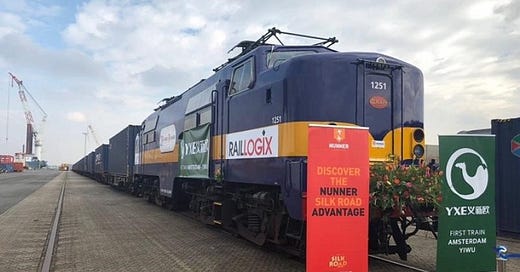By: Hamish McDonald
The highly symbolic investment by Chinese leader Xi Jinping to bind Europe closer to China with steel rails through his trillion-dollar Belt and Road Initiative has been put in jeopardy by Russian President Vladimir Putin’s rash invasion of Ukraine, endangering the “no limits” partnership declared with Putin at the Winter Olympics in …
Keep reading with a 7-day free trial
Subscribe to Asia Sentinel to keep reading this post and get 7 days of free access to the full post archives.



